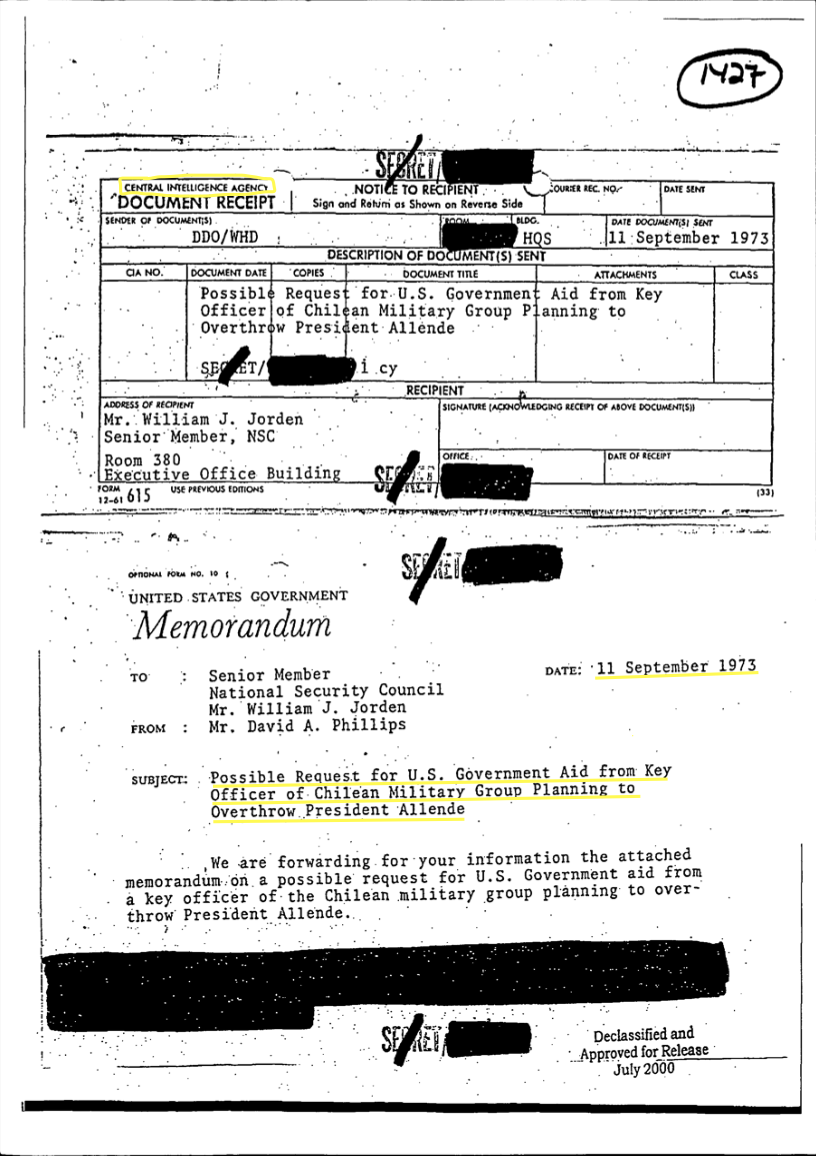
'Declassified CIA documents,' National Security Archives, 1970-73.
Communism, Chile, and the CIA
Taking a Look at the Declassified Communications That Led to the 1973 Chilean Coup

'Declassified CIA documents,' National Security Archives, 1970-73.
Due to increasing US insinuated economic struggles, Allende's administration was losing support from Chile’s middle class. Hoping these economic insecurities would push Allende from power, the US continued communications with CIA informants on coup operations. Under the influence of the US and Chile’s political right, the military forced its Commander-in-Chief, appointed after the death of René Schneider, to resign because of his Marxist beliefs. Allende could see he was losing control of the military. He appointed General Augusto Pinochet, who appeared to be politically neutral, as his next Commander-in-Chief, a decision that would ultimately lead to Allende’s fall. Under pressure from US political allies in Chile, Pinochet eventually agreed to a coup citing Chile’s political and economic climate.
"[We believed a coup] would never happen in Chile. Chile was such a solid democracy. And when it happened, it had brutal characteristics."
~ Isabel Allende,
Chilean author and goddaughter of Salvador Allende
A military junta was formed, and on the morning of September 11, 1973, the military entered Chile’s major cities including the capital, Santiago. Soldiers rounded up Allende supporters and anyone who was thought to have ties to Chile’s communist party, creating a climate of violence and terror. Many of those abducted were brought to Chile’s national stadium where many were murdered, including famous folk singer Victor Jara, Allende’s personal driver, and other citizens, dying on the same field where their soccer team had just recently played. Those not shot were taken to remote detention camps where they were interrogated through brutal torture.
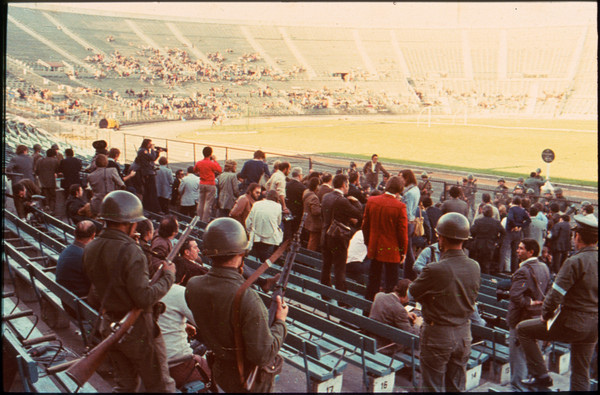
Burnett, David, 'The Chilean army rounds up political prisoners inside the stadium,' David Burnett Collection, 1973.
As the junta forcefully took power, Nixon and Kissinger remained in communication with Chilean military officials to monitor coup developments. Chilean Air Force pilots bombed the presidential palace, La Moneda, where Allende remained with no intention of resigning. During the attack, Allende died by gunshot, and although his death was ruled a suicide, it remains unclear to this day. On national radio General Augusto Pinochet declared himself the leader of Chile, communicating to the people his authority and instilling a sense of fear that would endure for the next two decades.
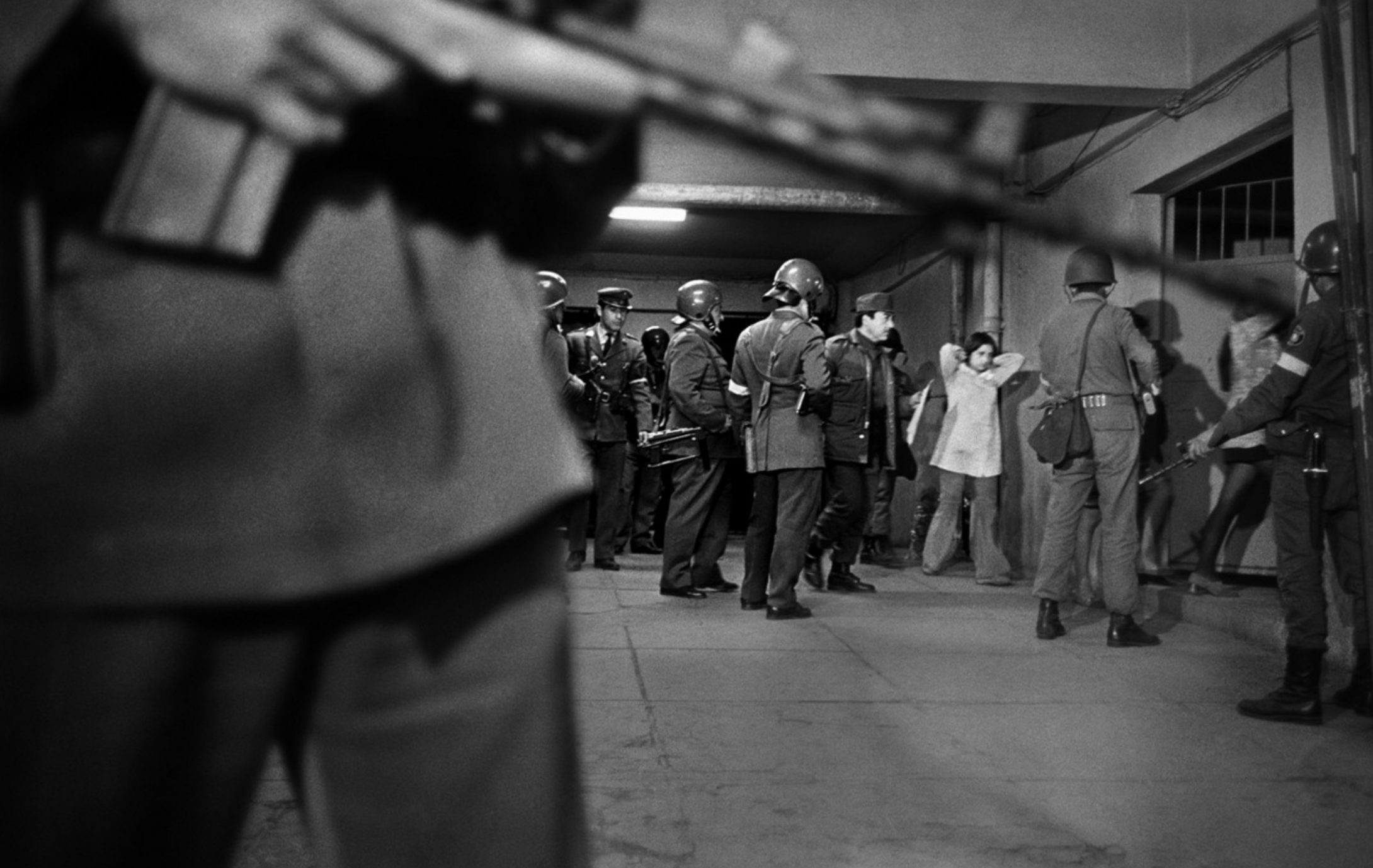
Burnett, David, 'Prisoners Are Brought to the National Stadium,' David Burnett Collections, September 1973.
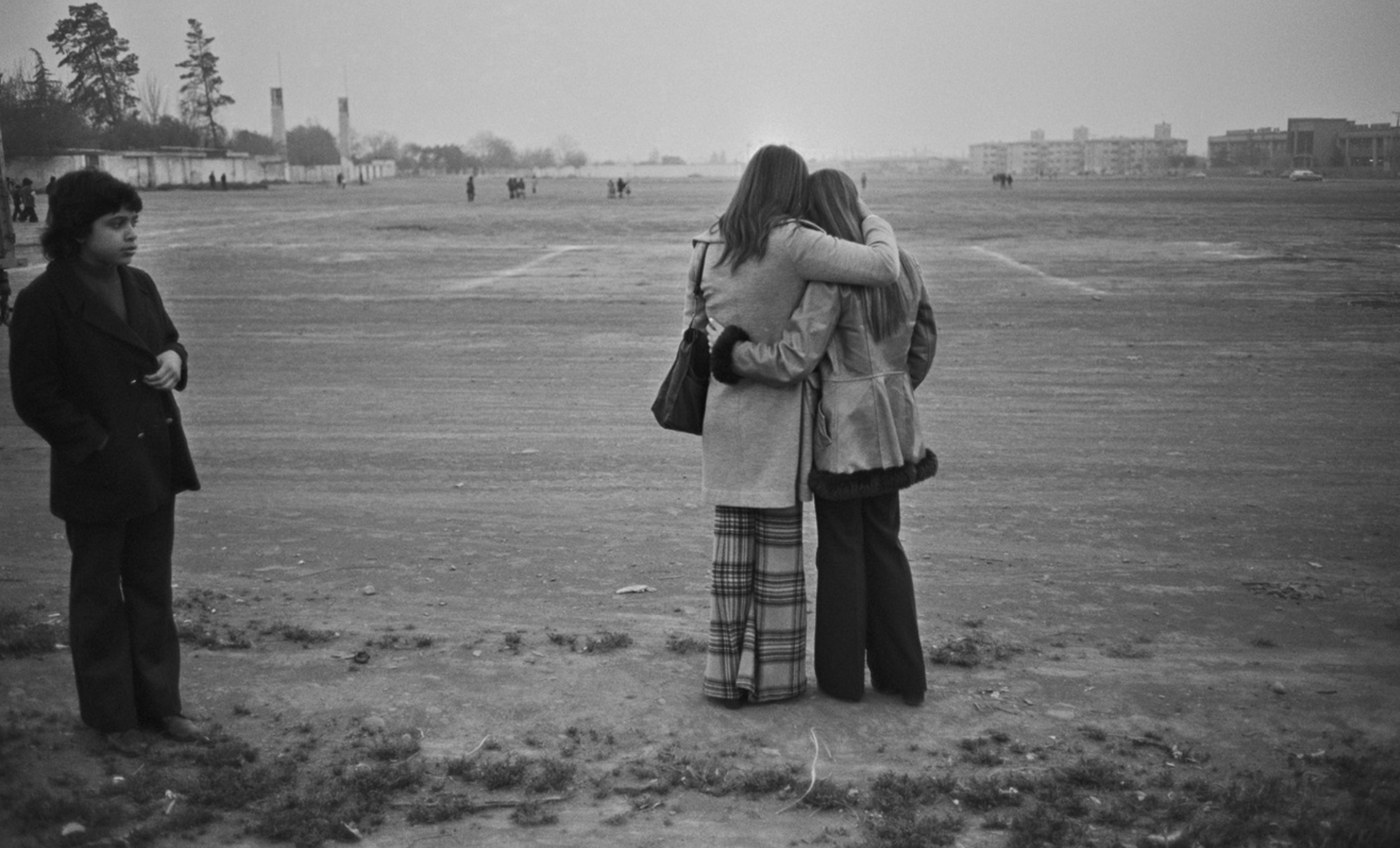
Burnett, David, 'Outside the Stadium Two Women Comfort Each Other,' David Burnett Collections, September 1973.
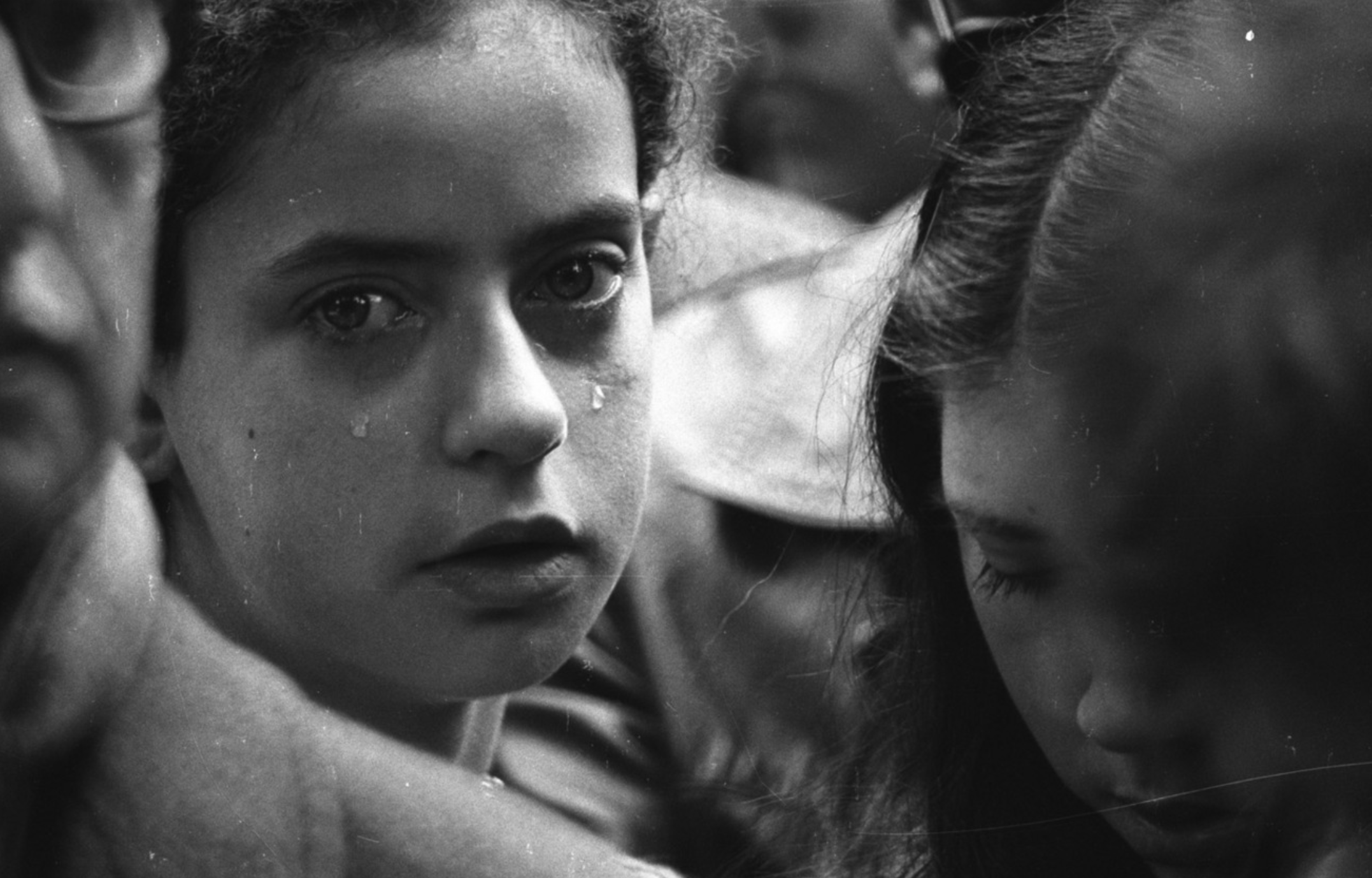
Burnett, David, 'A Girl Sheds a Tear,' David Burnett Collections, September 1973.
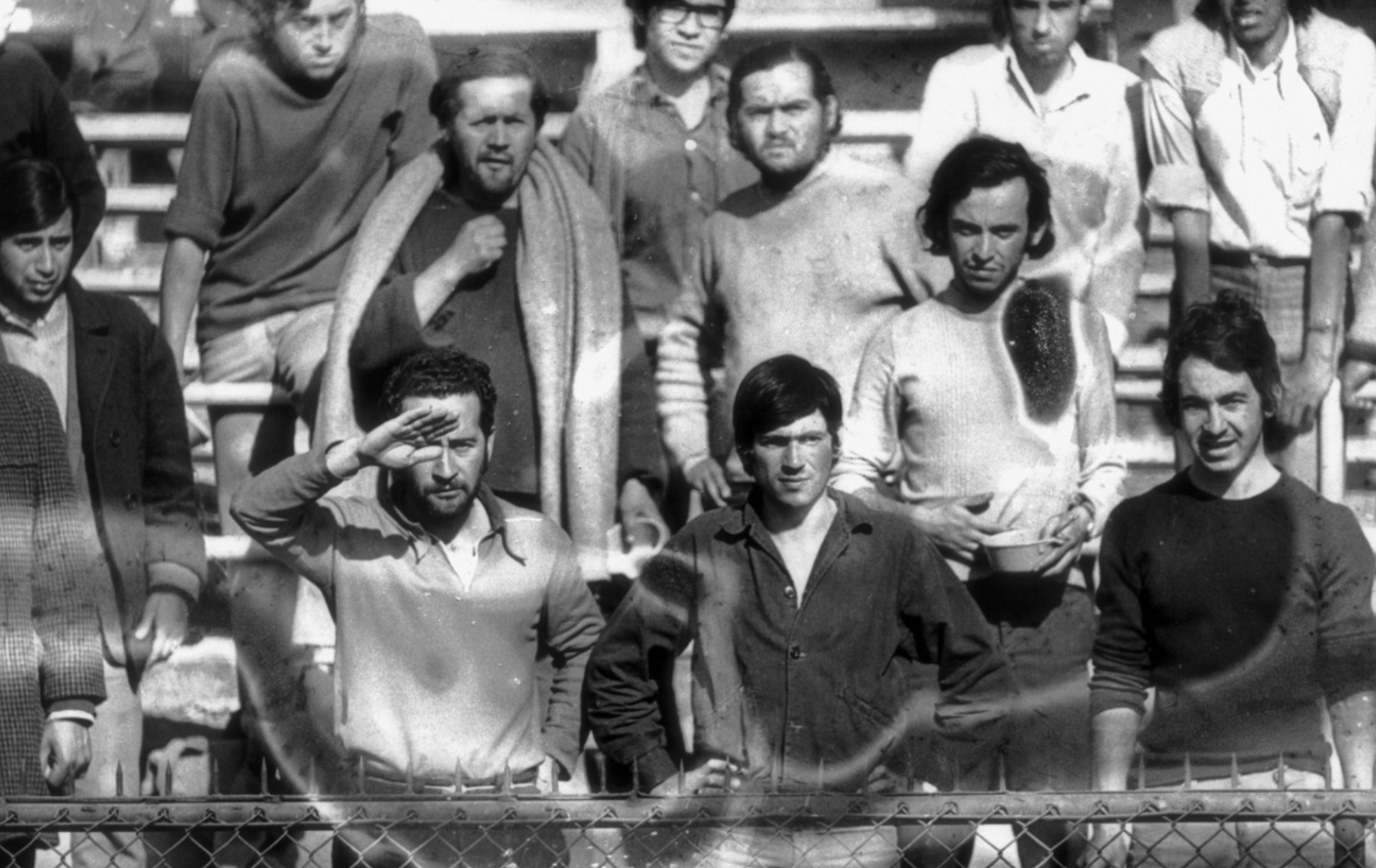
Burnett, David, 'Prisoners Kept at the National Stadium,' David Burnett Collections, September 1973.